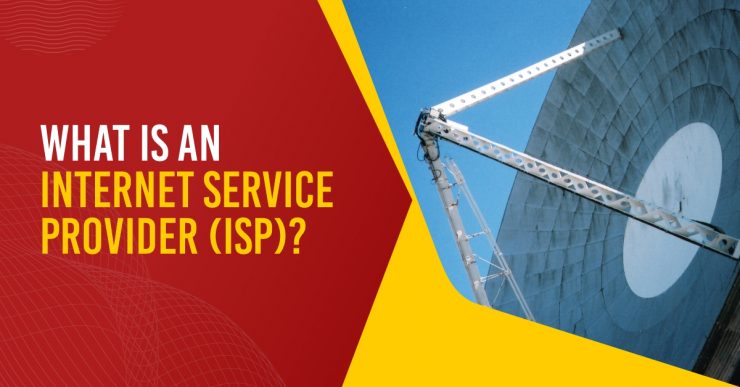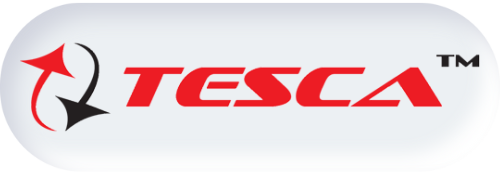Table of Contents
What is an Internet Service Provider?
An ISP (Internet service provider) provides Internet access for individuals and businesses. At a low price, you are receiving speed nearby related services such as building Web sites and hosting virtual servers. Internet service providers are also called Internet access providers (IAPs).
ISPs have the equipment and access to telecommunication lines necessary to serve a geographically defined area on the Internet.
Due to their own high-speed leased lines, larger Internet Service Providers are less dependent on the telecommunications providers and can therefore provide better service to their customers. There are many regional and national ISPs, including AT&T WorldNet, IBM Global Network, MCI, Netcom, and UUNet.
As well as regional providers, they also include thousands of local providers such as NEARNet in New England and BARNet in the San Francisco Bay area. Citizens can also access the Internet through online service providers (OSP) such as America Online and Compuserve.
Several very comprehensive ISP lists are available on the web. Most of the largest ISPs interconnect with each other via MAE (an ISP switching center operated by MCI WorldCom) or similar centers. The arrangements made to exchange traffic are known as peering agreements.
All broadband Internet Service Providers (ISPs)
Here we have compiled a list of the various internet service providers among which we have chosen a few best providers for you who give away the fastest speed and unlimited internet.
1. Airtel Broadband Plans: Two Airtel broadband plans are available for around Rs 1,000, the highest speed being 40 Mbps for Rs 899. However, there is a catch to the plan. There is another plan priced at Rs 1,099 that offers internet speeds up to 100 Mbps. The broadband data in this package is limited to 250 GB, however, you can purchase an additional 1,000 GB as ‘Bonus Data’ from the company.
2. Excitel Broadband Plans: There is no Fair Usage Policy (FUP) with Excitel’s unlimited data plan. For Rs. 995 plus taxes, you can get 100 Mbps internet speed and no data cap. They are also offering unlimited internet at 75 Mbps for Rs 845 (plus taxes).
3. MTNL Broadband Plans: As for MTNL, the offered options are a bit rusty, with a plan at 999 rupees called Freedom ULD-999. You get unlimited free calls on MTNL (Delhi & Mumbai) with this plan. You get up to 8 Mbps of internet speed for the first 100 GB of data per month, then speeds drop to 1 Mbps after that.
You can read also: What is Telecommunication Network and Types of TCN?
4. BSNL Broadband Plans: With BSNL, you can get two plans that cost close to Rs 1,000. At Rs 949, you can opt for the BBO ULD 949 plan that offers internet connectivity up to 10 Mbps during the 30 GB period. After that, the speed drops to 2 Mbps. You will receive unlimited internet access up to 10 Mbps on the plan worth Rs 950, but after 20 GB, it will be reduced to 2 Mbps.
5. Spectra Broadband Plans: Spectra offers 1 Gbps of internet speed for under Rs 1000 at Rs 899 in Delhi. However, the caveat is that this comes with a 150 GB data limit. There is also a Rs 1,000 installation fee and Rs 2,000 security deposit.
6. ACT Fibernet Broadband Plans: With ACT Platinum Promo, you will get 150 Mbps to download speed. The data limit is 1,000 GB, and you will receive 1,000 extra GB. Once your data is used up, your connection may become slow.
7. Hathway Broadband Plans: The ‘Ultra 10 Mbps’ plan from Hathway gives you an internet speed of 10 Mbps without any FUP. This means that the internet remains at 10 Mbps throughout the validity period.
8. Gigatel Broadband Plans: The Rs 999 plan provides you with internet speeds up to 100 Mbps. This does not include rental fees. When you purchase the FTTH modem, another Rs 75 per month will need to be paid, and the WiFi router (150Mbps) will also require an additional Rs 75.
Types of Internet Service Provider (ISP)
The Internet Service Providers (ISPs) offer different services to connect customers to the Internet. These companies provide different types of protocols and speeds of connectivity. There are other options besides cable and DSL in rural areas, so try to analyze your needs before choosing an ISP. Here are various types of ISPs are:
- Dialup: ISPs offer dial-up Internet access in rural areas, even if it’s painfully slow. Dialup ISPs require users to own a modem to access the Internet. Dialing a phone number, connecting to a remote server, and browsing websites are part of this process.
- DSL: There are many types of DSL services being offered by local phone companies. DSL is a technology that makes use of additional signals not used by telephone signals. These “extra” signals make DSL usage possible to be accessed even when the phone rings or people are using their telephone access. To connect a DSL router to a phone jack, a telephone cable is used.
- Satellite: In places where DSL or cable can’t be received, satellite access is offered instead. Satellite access has rapid download speeds, but upload speeds must be handled by a modem, which is very slow. Most of these connections are used by rural residents who do not have access to any other type of broadband service.
- Cable: Almost all cable companies provide Internet access via cable. A computer can be connected to a cable modem and a cable router by connecting to a designated jack. The speed of cable Internet services varies with the amount of traffic from neighboring households. Cable Internet connections are shared by neighbors, unlike DSL, which limits the amount of speed.
- Wi-Fi Access: The Internet can also be accessed via Wi-Fi, a wireless technology used by laptops and available at many hotels and coffee shops. Wi-Fi is not as fast as DSL or Cable, but it’s a more convenient alternative than Cable.
What services do ISPs provide?
The other services that ISP provides:
- Online Shopping
- Conduct business
- Connecting friends and family
- Email services
- Domain registration
- Web Hosting
- Browser package
- Surfing the internet is made possible by ISPs
What is the difference between a local Internet Service Provider and a National Internet Service Provider?
If you want to choose between the Local ISP and National ISP, you must first know the difference between them.
1. Location: As a general rule, your choice of an internet service provider will be defined largely by what’s available in your neighborhood. Let’s face it, it’s nice to stick with an ISP you’re familiar with, one you’ve heard of plenty of commercials.
So if you suddenly realize that your old ISP won’t help you with your new address, don’t be afraid. There are a lot of Local ISPs available.
2. Cost: It is usually the cost that determines which provider you choose and ISPs are no exception. National ISPs advertise lower upfront costs, but they often charge large fees later on, such as annual service agreements and early termination charges.
In the end, the low monthly bill you expected turns out to be very different from what you expected. The low-priced packages often do not include taxes and other fees.
The availability of locally based ISPs means your prices won’t change, and that you’ll be able to shop around for another service provider. “Your local ISP will offer you a more reasonable price range than a national ISP.”
3. Speed: In terms of choice of ISP, download and upload speeds are also important factors. Local ISPs are often more reliable due to one simple reason, the amount of data usage at any given time.
Your National ISP may offer impressive download speeds, but they only apply if your receiving speed is comparable. Data cables can only transfer so much data at any given time; as usage increases, the speed suffers as the data cable fills up.
4. Reliability: If you are looking for a new internet service provider, reliability is probably the last thing on your mind, but it is the one factor that can make or break your relationship with your ISP provider.
No matter how big or small the corporation or how individual the consumer, every millisecond counts. The facts of life are that technology sometimes fails, but your local service provider will likely have a service technician nearby to fix the problem, whereas your national ISP may take several days longer because the service area is wider.
How do I know what my current Internet Service Provider is?
Usually, an Internet Service Provider is a telephone or cable company who provides you with Internet service. If you aren’t sure who your ISP is, click on a website that can detect your IP address for free. There is a simple way to find your current Internet Service Provider, you have to follow these simple steps which are:
- Open your browser
- Visit www.ipcheck.org or IP Lookup Tool
- Then the ISP will be displayed below your IP Address.
How do ISPs work?
An important feature of the Internet is that it is a giant collection of networks that are all connected somehow. This allows computers from around the world to communicate over it. A computer that is connected to the Internet becomes a part of this network.
The Internet is a very large network of interconnected networks or transmission networks in computer jargon. This communication network transmits data and information around the world.
To provide Internet access worldwide, many high-speed data lines are used, also known as the Internet backbone. These lines are connected to the major Internet hubs located throughout the world, and the hubs, in turn, distribute the data to the various locations.
You can read also: What is Local Area Network, Types, and Benefits of LAN?
Cable, DSL, and fiber connections are the most common technologies used by ISPs for providing broadband Internet access. As of today, most Internet service providers deliver Internet via cable to provide Internet access on smartphones.
An increasing number of companies have also begun providing wireless internet access. As well as wired services, internet service providers also provide internet service over wireless systems.
Previously, cable companies had to lay lines throughout the community to serve the people with internet service. But once wireless internet was introduced, only satellites and towers enabled people to access the internet.
Pros and cons of using ISP
Advantages or Pros of using an ISP:
- You do not have to purchase your web server.
- It is usually possible to connect to the Internet very quickly through most ISPs.
- It shouldn’t be surprising if the ISP’s servers are highly available (uptime) and reliable.
- You should make sure that your ISP is maintaining a secure operating environment, providing high-quality virus protection, and applying the latest software patches to make sure your site is secure.
Disadvantages or Cons of using an ISP:
- Maintaining the accessibility and security of your website relies on your ISP’s competence.
- This could cause performance problems for your website if the ISP hosts too many other websites on a shared server.
In some cases, your IP address may be on several spam blacklists if your ISP gets blacklisted (e.g. for hosting adult content or spam sites). It might result in your emails being filtered out and junked or in your inability to register with certain services, web




